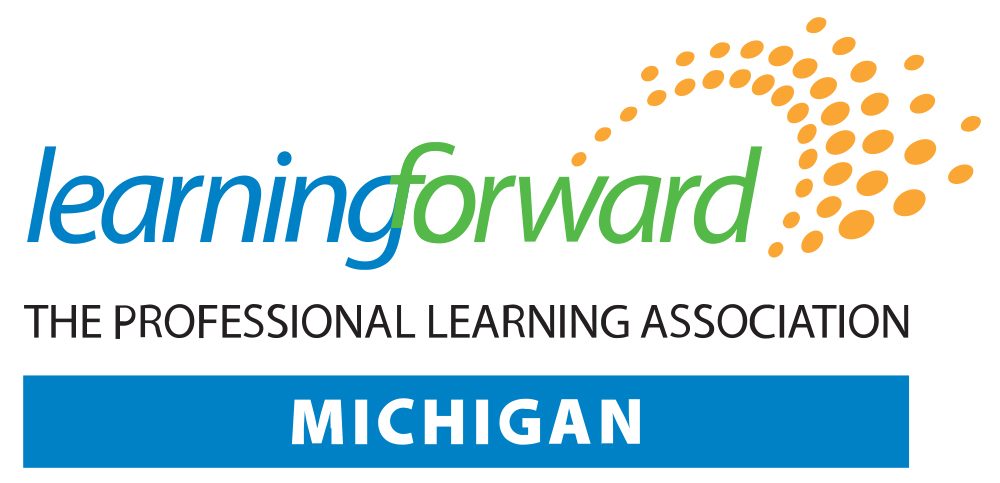Big Questions and Culture Work: JEPL (Job Embedded Professional Learning)
by Lauren Childs
Job-embedded Professional Learning (JEPL)
I drove to the second fall gathering of the JEPL network with an eagerness for the day’s conversations and with a sense of impatience to see the next steps for strengthening the efforts of this committed, proactive, and thoughtful group of school leaders. My excitement this crisp morning was heightened by knowing the team facilitating today’s agenda had planned for a rich day of panel reflections, new information, and lots of time for the leaders to think and talk together.
The Job-embedded Professional Learning Network, based in Oakland County, has been meeting for the past decade to support teacher leaders’ learning and leadership development as they strive to create and support meaningful professional learning experiences as part of the everyday engagement of practicing teachers.
As lead for this network and mentor for this year’s new leadership team, I kept thinking about the goals the team identified during a late summer design session. I was struck by the questions they raised, questions well beyond the scope of supporting one another’s understanding of adult learning design or facilitation skill development. They had identified a set of driving questions that reflected a maturing of their collective commitment and their aspirations for JEPL to have longer term impacts. I wanted to be sure they kept these questions in mind as their year unfolded. In August they had wondered:
- How might we advocate/educate for the importance of prioritizing JEPL; make advocacy an activity of the network members?
- How might we learn about ways reflection is being embedded into teachers’ practices, work lives?
- Can we articulate the non-negotiables of JEPL so that we can strongly advocate for the prioritizing of resources; what are the tables the advocates need to have a seat?
- How might we help the network use the Standards for Professional Learning to map to their specific district PL plans?
- How do we help districts become more informed about the JEPL options that might work in different contexts (labs, walks, book study, online, video club, lesson study, etc)?
- How might we build the next volume of JEPL guidebook to help with above goals? What platform should we use?
- What if we dedicate one session to inviting administrators to think together about JEPL?
- How do we keep the practical support as well as systems change provided to members of the network?
- What does a “JEPL Network” look like in other states?
At the end of the day, the leadership team was indeed moving these questions forward. Marcia Hudson, Elementary Literacy Consultant and Teacher Leader for Avondale Schools, also the hosting network member, had invited a panel of Avondale administrators to reflect aloud on the connection between job-embedded professional learning and student achievement. The panel included: Dr. James Schwarz – Superintendent of Schools, Carmen Kennedy – Asst. Superintendent for Curriculum and Instruction, Kimberly Hempton – Principal, Auburn Elementary School, and Dr. Cynthia Carver – Asst. Professor Oakland University (Teacher Leadership) and Scholar in Residence at Auburn Elementary. Marcia asked them to begin by focusing on the theory of change that accompanies the Standards for Professional Learning in the Quick Reference guide (https://lfstage.xyz/docs/pdf/standardsreferenceguide.pdf). They made numerous points:
- We keep our focus on professional learning and know that it is deeper and richer than “training”. Professional learning is an explicit part of our school and district plans.
- We see professional learning as a kind of continuous feedback loop that helps us keep getting better. This approach to professional learning must be engaged regularly, frequently; it is the most important element in driving good instruction.
- And, teachers are best situated to be the architects of the professional learning needed in this paradigm.
- A decade ago, as a profession, we were working from an assumption that teachers would know what to do with the changing needs of students. We now know we must engage in continuous professional learning to create teaching practices that are responsive to student needs.
- It is a connect-the-dots problem—moving theory to practice. We cannot rely on the former approach of new understandings of teaching and learning being presented at the front of a ballroom and expect it to show up in teaching practices, much less impact student outcomes. The student results needed today demand we attend to the theory of change and the standards for professional learning.
When Marcia opened the floor for network members to press the panel with new questions, two stood out: First, “How have you seen Avondale grow into this model, this theory of change?” Second, “How do you suggest we advocate for time with our colleagues to engage in more meaningful professional learning?” Kennedy described an exemplar of how the JEPL model has emerged at their high school through one teacher leader focusing on design thinking. By engaging the administrators in this focus, this teacher helped create and now leads professional learning with and for six other teachers. He leads their pursuit of field trips to explore design thinking in varied contexts.
“When advocating for more time,” advised Schwarz, “you need to come with a plan. Come to the table with a plan—advocate for that plan.” And, chimed in Carver, “use the data to support the plan.”
Carver also commented that she observed and has often puzzled about the districts’ stance of a voluntary approach to participating in some of the PL opportunities, in Teacher Lab Learning specifically. Wouldn’t we want it to be required for all? And, yet, we have all witnessed the voluntary growth of the teacher lab in this one district led to, not a mandate or requirement of all, but a cultural shift that includes all. The take-away for me was this:
After all the conversations we have had about the voluntary versus required participation dilemma inside job-embedded professional learning, it really is culture shifting! We must shape and sustain a culture where educators’ professional learning—at all levels—is valued and pursued with intention.
As I drove away from the school, I smiled, knowing it had been a very good networking day for the group. I later texted my personal reflection back to the leadership team. I felt grounded in the work because of the space for thinking and dialogue they had created for all of us. The day renewed my sense of eagerness—urgency, even—to pursue our Learning Forward Michigan’s aim to pursue a statewide professional learning network that asks big questions—and goes after them. Perhaps you will join us!

Our Vision
Equity and excellence in teaching and learning.
Our Mission
Learning Forward Michigan builds the capacity of leaders to establish and sustain highly effective professional learning.
Standards and Impact
Supports the implementation of standards and examines evidence to strengthen and document the impact of professional learning.
Leadership and Practice
Builds the capacity of its members, clients, partners, and staff to establish and sustain effective professional learning.
Advocacy and Policy
Advocates for policies and practices that strengthen the field of professional learning.

